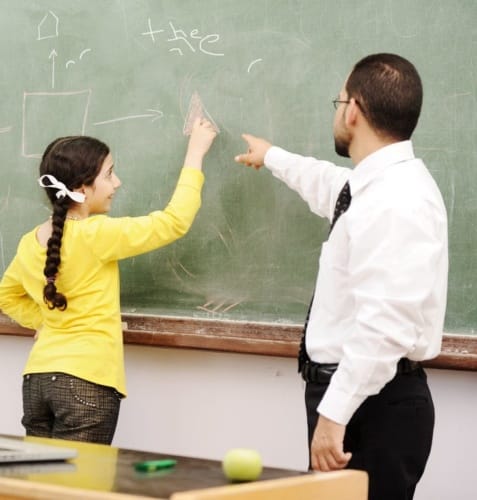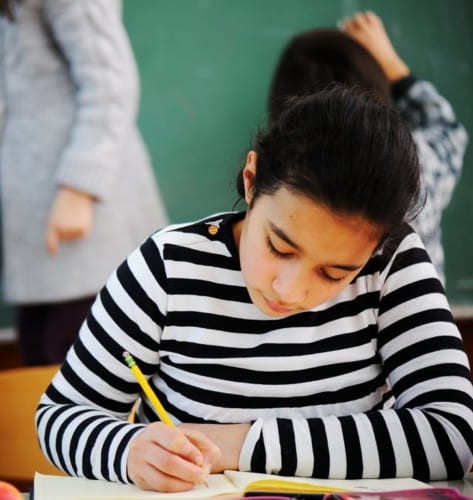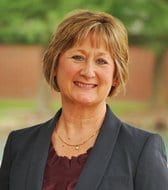Table of Contents
Focus on professional learning to meet student needs
by Kristi Meeuwse and Diane Mason
The Future Is Now
As students face growing needs to function competently in a global society, a greater focus must be placed on educator professional learning to meet these needs. Teachers’ skillsets should include the ability to develop students’ attitudes involving cultural diversity, facilitate the capacity for understanding global events and the impact of these events on a local level, and provide opportunities to develop communication skills, as well as critical thinking and analytical skills. The Organization for Economic Co-operation and Development (OECD) noted increasing demands in the global workplace require specialization of skills and knowledge.
 With ever-changing communication streams and workflows, complacency is not a luxury our teachers and students can afford. How are educators fostering global citizenship and competency? In other high-achieving nations, educational systems are being revised to strengthen pedagogical practices, and modify classroom practices to encourage innovation and build capacity. The United States must incorporate meaningful technology and creative learning spaces to stay competitive in a global education market. Global competency does not require a separate curriculum. By infusing global content within required subject areas, students have authentic opportunities to examine and solve real-world problems.
With ever-changing communication streams and workflows, complacency is not a luxury our teachers and students can afford. How are educators fostering global citizenship and competency? In other high-achieving nations, educational systems are being revised to strengthen pedagogical practices, and modify classroom practices to encourage innovation and build capacity. The United States must incorporate meaningful technology and creative learning spaces to stay competitive in a global education market. Global competency does not require a separate curriculum. By infusing global content within required subject areas, students have authentic opportunities to examine and solve real-world problems.
Successful Practices In High Achieving Nations
Teacher Quality
Globally, high-achieving nations have prioritized professional learning and have placed a great emphasis on teacher quality, including pre-service learning. With recruitment of only top students, strict entry requirements, and rigorous training programs, countries such as Finland, Japan, Russia, Korea, Singapore, and Turkey demonstrate a correlation between student scores and rigorous entry requirements. Further, teachers in these countries conduct action research, engage in regular reflection and evaluative exercises. These processes are instituted in teacher education programs and continued as employment expectations in schools.
 Professional Learning Opportunities
Professional Learning Opportunities
Teachers in high-achieving nations are provided release time to enact action-research studies and evaluate teaching practices. With extended collaborative activities and job-embedded professional learning, teachers can focus on those instructional practices that were successful in raising student achievement. Additionally, teachers are engaged in professional learning activities during the school day on average, 20 hours per week. Over a course of six to 12 months, gains were noted in student achievement. Embedding professional learning during the school day gives teachers collaborative planning time and opportunities to reflect upon what works in schools.
Communities of Practice
Despite global successes integrating professional learning communities (PLC’S) and providing educators opportunities to make decisions regarding professional learning, the United States provides few opportunities for teachers to have a voice in professional learning. Further, teachers in the US work directly with students 80% of their working day, while European and Asian countries spend approximately 60% of their working day with students. The remainder of their day is spent in collaborative planning activities. With less time to plan collaboratively, teachers in the US have fewer opportunities to build capacity and participate in professional learning communities.
Research shows teacher motivation is increased when collaborative approaches are used and are incorporated into the work day. In addition, when educators are provided opportunities to participate in global professional learning networks, they are exposed to a large array of learning opportunities in the world of education.
United States
Achievement Gaps
 While the United States has implemented initiatives to increase teacher quality and reform educational practices, disparity remains. Rural schools lack sufficient resources and outdated technology infrastructure suitable for 21st-century learning. Inner city schools face similar issues as well as poverty, violence, poor attendance and lack of parental support. Teachers in these areas lack exposure to innovative instructional practices and lack capacity to implement them. Yet, wealthier districts have access to more resources, newer technologies, community partnerships, and as a result, perform as well as international peers. By not adequately addressing these achievement gaps, they become cyclical in nature and perpetuate wider gaps.
While the United States has implemented initiatives to increase teacher quality and reform educational practices, disparity remains. Rural schools lack sufficient resources and outdated technology infrastructure suitable for 21st-century learning. Inner city schools face similar issues as well as poverty, violence, poor attendance and lack of parental support. Teachers in these areas lack exposure to innovative instructional practices and lack capacity to implement them. Yet, wealthier districts have access to more resources, newer technologies, community partnerships, and as a result, perform as well as international peers. By not adequately addressing these achievement gaps, they become cyclical in nature and perpetuate wider gaps.
In addition to gaps in student achievement, the United States lags behind other high-achieving nations in mathematics, science, and technology. Schools throughout the country are grappling with teacher shortages in these areas. Many districts find there are not enough qualified applicants to meet the demands. This forces increased class sizes, which decreases the amount a student may learn. Individuals highly qualified in STEM content areas often find jobs in the private sector that pay more.
Also, states are placing greater focus on literacy to raise achievement in reading on standardized tests. Professional learning resources are being directed toward increased training in pedagogical practices in literacy. As a result, fewer resources are being directed toward science, math, and technology.
In contrast, European countries place a greater focus on STEM subjects and provide substitute teachers so professional learning occurs during the workday. However, European countries do not fully fund professional learning. Instead, teachers pay for the specific courses or sessions while their employees fund a substitute. This commitment from both parties enables teachers to engage in professional learning experiences that align with their interests and needs during a mutually desirable time.
Moving Forward
Today’s young students face a future completely different from the past due to a highly connected world. With the present interconnectivity of information, resources and people, knowledge expands exponentially every day. Consequently, it is vital  that educational leaders provide a clear, focused vision to improve student achievement in an interconnected environment conducive to using technology resources to support instruction. However, many systems worldwide still function in old paradigms, which often stifle effective instructional practices designed to bridge student needs with opportunities for engagement in an interconnected manner to improve achievement.
that educational leaders provide a clear, focused vision to improve student achievement in an interconnected environment conducive to using technology resources to support instruction. However, many systems worldwide still function in old paradigms, which often stifle effective instructional practices designed to bridge student needs with opportunities for engagement in an interconnected manner to improve achievement.
Creating a learning organization requires external and internal accountability. It is critical for leaders to build capacity and shift pedagogical practices to target improved student achievement. To do so, internal capacity building is key. Districts with high expectations, a focus on continuous learning, and ongoing feedback are more likely to show improved achievement.
One way to move forward toward creating a learning organization is to place priorities on developing and implementing continuous personalized professional development with ongoing feedback. Governments, Ministries and Departments of Education should provide the enabling conditions by instituting professional learning standards and frameworks, developing and implementing policies for funding flexibility and support for teacher personalized learning, and establishing guidelines that help ensure educator success at the beginning of their careers. Furthermore, professional learning should equip teachers to work in the political, economic, and social context in which they are expected to teach, while keeping an eye on teacher perceptions, knowledge, and instructional needs.
Author
Dr. Kristi Meeuwse is a veteran kindergarten teacher in Charleston, SC as well as an adjunct professor for Lamar University in their Digital Leading and Learning Master’s Degree program. As an Apple Distinguished Educator, Kristi travels extensively sharing her innovative early literacy practices incorporating iPads into instruction. Kristi is the author of the popular blog iTeach With iPads, which is a chronological account of student voice and choice in demonstrating learning. She also authors leveled readers for her students to enhance literacy learning. Research interests include early literacy, technology integration, and professional development.
 Dr. Diane Mason is an Associate Professor in the Center for Doctoral Studies in Educational Leadership at Lamar University in Beaumont, TX and is the College of Education Director of Graduate Studies and Research. During her tenure at Lamar University, Dr. Mason has taught numerous online courses in Educational Leadership and Educational Technology Leadership. In her current role in the online doctoral program, Dr. Mason works with an online team to lead a unique cohort of global distinguished educators. Her prior K-12 experience includes serving as a technology training center coordinator, teaching K-8 regular and special education, and leading as a middle school assistant principal and elementary principal.
Dr. Diane Mason is an Associate Professor in the Center for Doctoral Studies in Educational Leadership at Lamar University in Beaumont, TX and is the College of Education Director of Graduate Studies and Research. During her tenure at Lamar University, Dr. Mason has taught numerous online courses in Educational Leadership and Educational Technology Leadership. In her current role in the online doctoral program, Dr. Mason works with an online team to lead a unique cohort of global distinguished educators. Her prior K-12 experience includes serving as a technology training center coordinator, teaching K-8 regular and special education, and leading as a middle school assistant principal and elementary principal.
During Dr. Mason’s tenure as a K-8 teacher, the National Foundation for the Improvement of Education (NFIE) recognized her as a Christa McAuliffe Fellow for innovative online and technology integration practices. Also, she is the past president of the ISTE state affiliate, Louisiana Computer Using Educators, peer reviews journal articles for the National Council of Professors of Educational Administration, and is a member of the Lamar University Institutional Review Board. Research interests include online learning, technology integration, professional development, school improvement, and leadership.
Further Reading
- HuffPost – Education Cannot Wait – investing in our shared humanity
- Killeen Daily Herald – KISD teachers move out of classrooms to work as instructional coaches at multiple schools
- Education Week – Teaching: Some Global Comparisons



 Professional Learning Opportunities
Professional Learning Opportunities